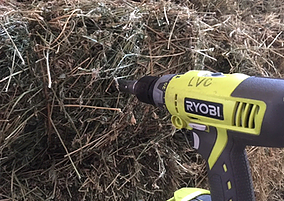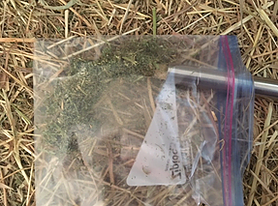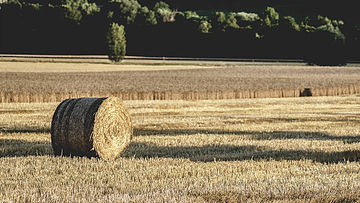Hay is a crucial part of an equine diet in the Midwest, and its nutrition content can play a big role in what grain and supplements your horse may or may not need. When creating a nutrition plan for your horse(s), we recommend a hay analysis. A hay analysis is easy to obtain and can tell you a lot about the forage your horses are eating.
What information can a hay analysis provide?
Sugar content
- The sugar content is key for horses with metabolic conditions such as Pituitary Pars Intermedia Dysfunction (PPID, or “Cushings”) as these horses should ideally be limited to hay which is less than 10% NSC, the non-structural carbohydrates.
- When limited hay is not an option, we often recommend soaking hay in cold water, which can decrease the NSC level by approximately 30%
Digestibility and consumability
- Are your horses wasting a large amount of the hay you provide? The consumability may be low if so.
- Poor digestibility can lead to “hay belly” appearance.
Calcium content
- Calcium can indicate the amount of alfalfa in the hay (more calcium = more alfalfa)
Mineral content
Digestible energy
- How much energy can be extracted from the hay
The Relative Feed Value (RFV)
- RFV is the overall quality of the hay, graded out of 200
- An average hay is typically between 95-115.
- Keep in mind that not every horse (in fact many horses!) don’t need the highest quality hay!
Moisture content
- High moisture can lead to spoilage more easily
Crude protein
- Especially important for horses with impaired kidney function, as they can’t balance their protein as effectively
Another key reason to have your hay analyzed is to better determine how much grain (if any) is needed based on the horses’ demands and requirements. In other words, a hay analysis is crucial to properly balance a ration.
Testing the Hay
It’s ideal if we can sample a random assortment of 8-10 bales to get an idea of the overall quality of the hay. From each of those bales we obtain a cross-sectional “core” sample across a large area of the bale.


Lodi Veterinary Care provides hay sampling services as well as diet/nutrition analysis recommendations. If you’d like to schedule a time for us to pick up a sample or if you have any other questions, please give us a call at (608) 592-7755.

